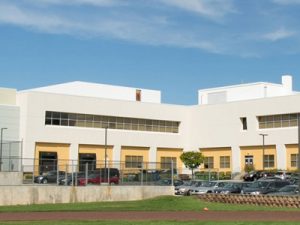Math Electives
11th Grade
Finite Math Workshop
Finite math covers the mathematics essential for pursuing degrees in the fields of the social and health sciences, business and consulting. The course has several major themes, including systematic counting, using discrete mathematical models, applying mathematical processes to real-world scenarios, and collecting and organizing information. Some topics include: combinatorics, matrix models, probability, expected value, symbolic logic, logarithmic functions, and exponential growth and decay. Students will also study descriptive and inferential statistics, which includes representing data visually, calculating measures of central tendency, and computing standard deviation and z-scores.
Assessments in this class will include open-note tests, projects and oral presentations. This course is a wonderful option for those students who want their junior elective to be of a strong academic nature without the pressure of significant additional coursework and exams during their junior year. With a strong emphasis on real world applications, the course incorporates individual and small-group problem solving with a focus on meaningful application of mathematics.
AP Statistics
A traditional college level statistics course for students who would like to take a second math course as their elective. This course is equivalent to a one semester introductory non-calculus based college course in statistics. The broad themes of this course are exploring data, sampling and experimentation, anticipating patterns and statistical inference. A one-year course in Statistics is often a required course for many college degrees, including social sciences, health sciences and business. It was also recently added as a requirement for all pre-med students. This course requires good reading comprehension skills due to a significant weekly reading load along with a solid foundation in Algebra 1 and Algebra 2. Placement in this course is subject to departmental approval.
Math Workshop (one semester)
Math Workshop is a three-day-a-week elective that prepares students for the math section of the SAT or the ACT. Students review the basic skills related to particular types of problems during the first two sessions of the week. Then, on the third day, they work on past SAT questions related to that topic. Depending on the makeup of the class, students can also work on ACT exams as well.
Senior Year Course Offerings
Calculus 1
This course covers the topics in differential and integral calculus. Students gain a deeper understanding of the behavior of functions through their study of limits and the derivative. In addition to learning techniques of differentiation, they also explore applications such as optimization and related rates problems. The integral is introduced through discussion of the Riemann Sum and the antiderivative. In the second half of the course, students focus on applications of the Fundamental Theorem of Calculus, techniques of integration, area between curves, and volumes of solids of revolution. Students in this course will be prepared to take the College Board Advancement Test in AB Calculus.
Calculus 2
This course covers the topics in differential and integral calculus. Students will build on their existing knowledge of limits and differentiation in order to explore the integral and its uses. In addition to applications such as volume of solids of revolution, students will explore higher-level integration techniques such as integration by parts and the use of trigonometric integrals. In the second half of the course, students focus on differential equations, the calculus of parametric and polar equations, and infinite series. Students in this course will be prepared to take the College Board Advancement Test in BC Calculus.
Statistics
Statistics Honors is equivalent to a one semester introductory non-calculus based college course in statistics. The broad themes of this course are exploring data, sampling and experimentation, anticipating patterns and statistical inference. Students in this course will be prepped for the College Board Advanced Placement Test in Statistics. Statistics is often a required course for those pursuing degrees in the social sciences, health sciences and business and was recently added as a requirement for all premedical students. This course requires good reading comprehension skills, along with a strength in mathematics. There will be extensive use of the graphing calculator.
Statistics
Statistics Intro is a wonderful and rich introduction to the field of statistics. The broad themes of this course are exploring data, sampling and experimentation, anticipating patterns and statistical inference. Statistics is often a required course for those pursuing degrees in the social sciences, health sciences and business. This course requires good reading comprehension skills along with a strength in mathematics. There will be extensive use of the graphing calculator.
PreCalculus
PreCalculus is a rigorous college prep course to prepare students for the future study of Calculus in college. This course is ideal for the student who plans to major in business, math, the sciences or those who plan to study law or medicine. The course covers polynomials, exponential and logarithmic functions, trigonometry and sequences and series. The Ti- 84 graphing calculator and DESMOS will be used extensively. Since the course is a continuation and culmination of topics from Algebra 1 and Algebra 2, this course is designed for students with a strong academic record in mathematics.
Finite Math
Students in this course will apply the concepts and methods of finite mathematics to model and explore a variety of practical situations. The course has several major themes, including systematic counting, using discrete mathematical models, applying mathematical processes to real-world scenarios, and collecting and organizing information. Some topics include combinatorics, matrix models, probability, expected value, symbolic logic, logarithmic functions, and exponential growth and decay. Students will also study descriptive and inferential statistics, which includes representing data visually, calculating measures of central tendency, and computing standard deviation and z-scores. Overall, the course incorporates individual and small-group problem solving with a focus on meaningful application of mathematics.
Topics in Finite Math
Topics in Finite Math is designed for seniors who have previously been in the E track. In this course students will apply select concepts and methods of finite mathematics to model and explore a variety of practical situations. The course has several major themes, including systematic counting, using discrete mathematical models, applying mathematical processes to real-world scenarios, and collecting and organizing information. Some topics include: combinatorics, matrix models, symbolic logic, and exponential growth and decay. Students will also study descriptive and inferential statistics, which includes representing data visually, calculating measures of central tendency, and computing standard deviation and z-scores through the use of graphing calculators and spreadsheets. Overall, the course incorporates individual and small- group problem solving with a focus on meaningful application of mathematics.





